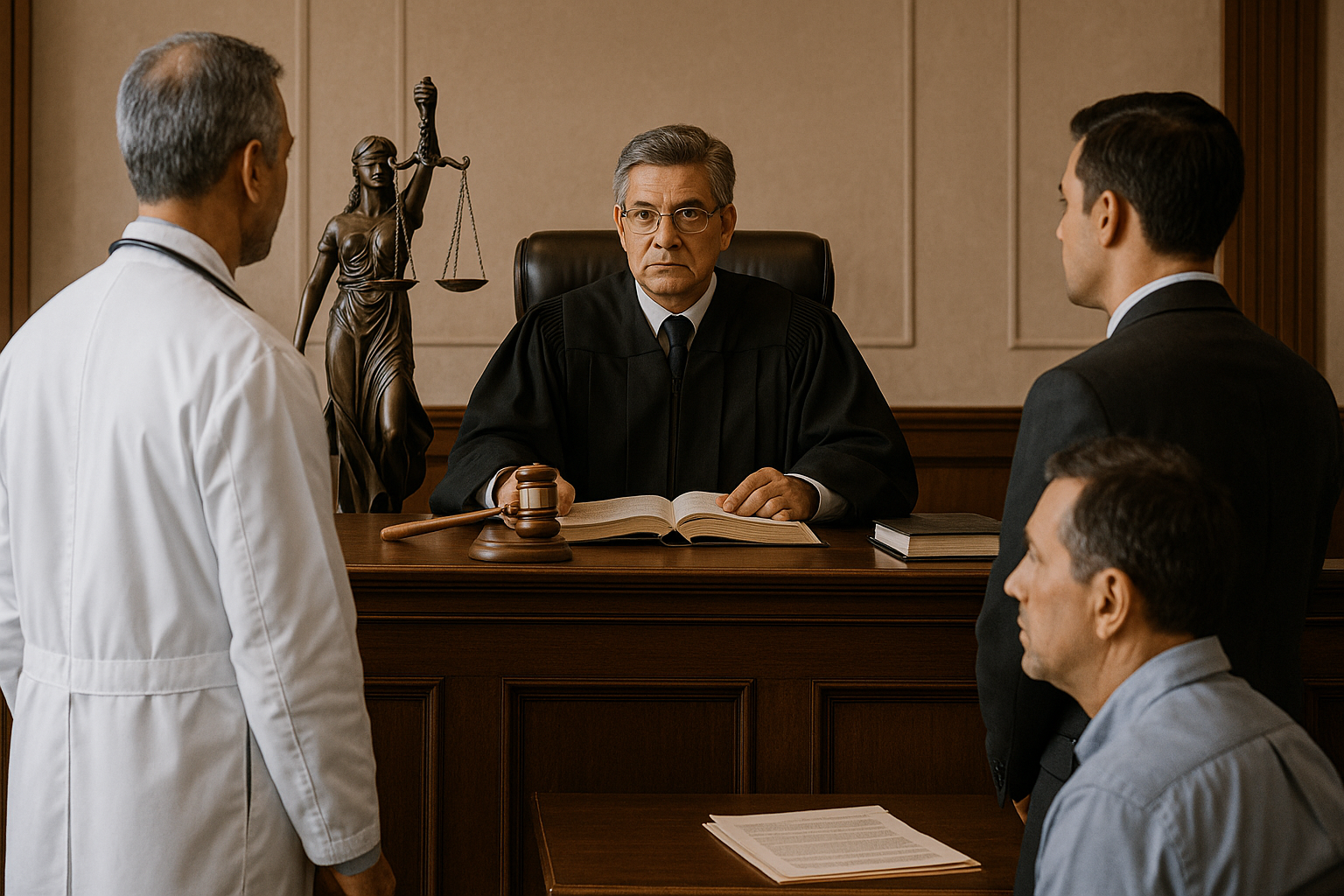The Patna High Court has quashed a criminal case against a group of doctors accused of negligence under Sections 304A and 120B of the Indian Penal Code (IPC), emphasizing the lack of any independent medical evidence and failure to follow guidelines laid down by the Supreme Court in such cases.
This matter arose when the complainant alleged that his father had died due to a surgery conducted at a private orthopedic hospital. The surgery was allegedly performed by an unqualified doctor instead of the doctor originally consulted, leading to the patient’s death. The complainant filed a criminal case alleging gross medical negligence.
However, the High Court, while examining the legality of the cognizance order passed by the Magistrate, noted several key lapses in the process:
- There was no postmortem conducted to ascertain the cause of death.
- The allegations were primarily based on suspicion and assumption.
- No expert medical opinion or evidence from a competent medical board was provided to establish a prima facie case of negligence.
Justice Shailendra Singh underscored the importance of safeguarding medical professionals from unnecessary harassment and reiterated guidelines issued by the Supreme Court in Jacob Mathew vs. State of Punjab and Martin F. D’Souza vs. Mohd. Ishfaq. These precedents mandate that before proceeding against doctors in criminal or consumer cases involving allegations of negligence, the matter should first be examined by a medical expert or a committee of doctors in the relevant field.
In this case, the Magistrate had taken cognizance of the offence without any such preliminary medical review, thereby violating the principles established by the Apex Court. Consequently, the High Court held that allowing the case to proceed would amount to an abuse of legal process and cause unnecessary harassment to medical professionals.
The Court concluded that since there was no substantive material linking the death to the alleged negligence, and in the absence of a postmortem or expert opinion, the continuation of criminal proceedings was unjustified.
Significance or Implication of the Judgment
This ruling is a strong reaffirmation of the legal protections available to medical professionals against unwarranted criminal proceedings. It sets a clear procedural safeguard — that courts must not initiate criminal trials against doctors based solely on unverified assumptions or layperson allegations.
For the public, this ruling helps clarify that while medical negligence is a serious concern, such cases must be grounded in medical fact, not merely suspicion. For the healthcare community, it reinforces confidence in the judiciary to uphold fairness and protect professional dignity.
Legal Issue(s) Decided and the Court’s Decision
- Issue: Whether the criminal cognizance taken under Sections 304A and 120B IPC was valid without a postmortem or expert opinion.
- Decision: No; cognizance was quashed due to lack of prima facie medical evidence.
- Issue: Whether medical professionals can be subjected to trial based on unverified allegations of negligence.
- Decision: No; courts must adhere to Supreme Court guidelines requiring independent medical review before proceeding.
Judgments Relied Upon or Cited by Court
- Jacob Mathew vs. State of Punjab & Anr., (2005) 6 SCC 1
- Martin F. D’Souza vs. Mohd. Ishfaq, (2009) 3 SCC 1
- Dr. Ashok Kumar Singh & Anr. vs. The State of Bihar & Anr., Cr. Misc. Case No. 40712 of 2012
Case Title
Dr. Rabindra Narayan Singh & Ors. vs. State of Bihar & Anr.
Case Number
Criminal Miscellaneous No. 22984 of 2016
Citation(s)– 2025 (1) PLJR 67
Coram and Names of Judges
Hon’ble Mr. Justice Shailendra Singh
Names of Advocates and Who They Appeared For
- Mr. Saket Tiwary, Adv. (for petitioners)
- Mr. Animesh Gupta, Adv. (for petitioners)
- Mr. Shivam Gupta, Adv. (for petitioners)
- Mr. Amritya Raj, Adv. (for petitioners)
- Mr. Binod Kumar No. 3, APP (for State)
- None appeared for Opposite Party No. 2
Link to Judgment
NiMyMjk4NCMyMDE2IzE2I04=-NaQsn5–ak1–f0Dw=
If you found this explanation helpful and wish to stay informed about how legal developments may affect your rights in Bihar, you may consider following Samvida Law Associates for more updates.








